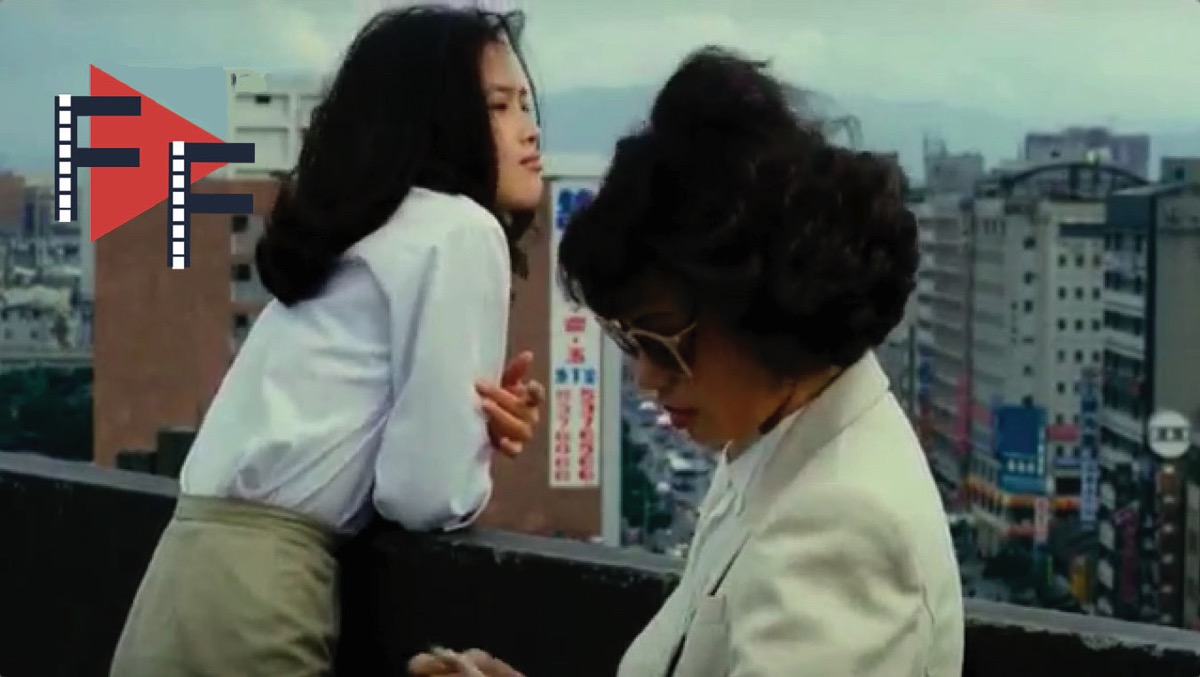Film Friday: Liminality in Edward Yang’s ‘Taipei Story’


For two high school summers, I sifted through my town historical society’s audio archives — tapes and reels — and digitized them one at a time in the basement.
I don’t remember much from those summers except that a few times a week, my manager would come downstairs to check on my work, then realize she needed to go back upstairs. Leaving the archival room to go upstairs she would forget mid-staircase why she was even ascending. Dazed, she would come back downstairs to ask why she’d even left.
Something about thresholds, and entering different headspaces when entering new places. Thoughts rooted in the physicality of the moment. It’s stuck with me in the ensuing years.
When people ask me why I moved to Beijing, there’s the typical huayi answer of discovering my roots, of wanting to finally be in a place where having a Chinese face is the norm. I invent a variation on a theme each time someone asks me. But my real reason for leaving New York for China after two years of administrative doldrums is that, one weekday night, I saw, in Brooklyn’s BAMcinématek, the newly-restored version of Edward Yang’s Taipei Story. Shortly thereafter, I applied for a job. I moved to Beijing several weeks later.
Taipei Story takes place in 1980s Taipei. The lead, Chin, is a woman who works at an architectural design company. She is a symbol of new Taipei. A confident young professional who wears large sunglasses and participates in shallow decadence, she plans to immigrate to California with her childhood sweetheart (the Chinese title is 青梅竹马 [qīngméizhúmǎ], which, in invoking Li Bai’s proverbial green plums and bamboo horse, expresses the innocence and naïveté of childhood loves). Her childhood sweetheart Lung is, in contrast, stuck in the past, symbolizing the traditional Taiwanese society whose confines she actually wishes to escape. He was a childhood Little League baseball star, and his team won the world championship back when he was in middle school. It never stops coming up in the film; it haunts him. Now his arm is thrown out, and he works a menial job at a textile shop, all while maintaining a misguided sense of filial piety to Chin’s father.
Though the storyline might sound formulaic for its time, the film is magnificent. Slow-moving images of early 80s Taipei stay with me, empty interiors the camera examines protractedly. Scenes of cigarette smoking on rooftops of colorless buildings. Winding mountain roads, silent and empty at night except for lone taxis and motorbikes. Brief and meaningless scenes of excess and hedonism.
I never knew much about either of my parents growing up. I knew my mother had left her government job at a patent law office in the late 80s, left what she had considered a stultifying existence in Shanghai to go abroad, as all her closest friends did. When I ask her why she left, she always has the same answer: “I was bored.”
Films mean everything when one is watching them in the right headspace. When I saw Taipei Story, everything about my mother began to make sense to me. Here was a place in the early 80s before the real economic boom would come, before foreign companies truly flooded in to establish their own offices, but that was yet riding the coming tide. Here was a place where immigrating to California seemed, well, like the best idea, if only because it was maybe the best hope for certain escape from traditionalism, for some attempt at self-actualization elsewhere.
Taipei Story trafficks in such interstitial spaces. What is the space between the dreams of adulthood and those of childhood? What kind of thinking is possible in the vertical glass and metal exteriors of new Taipei, still waiting to be filled with people? Or in the hallways that separate rooms in Chin’s childhood home, or the silent backroads where no taxis appear at night?
I moved to Beijing to figure out precisely how much more I could learn about who I was and why I grew up where I did — in suburban Connecticut, as one of the very few Chinese Americans in my town. What is the space between my childhood alienation and that which I feel in the crowds of the Beijing metro? What have I forgotten mid-stair?
Film Friday is The China Project’s film recommendation column. Have a recommendation? Get in touch: editors@thechinaproject.com





